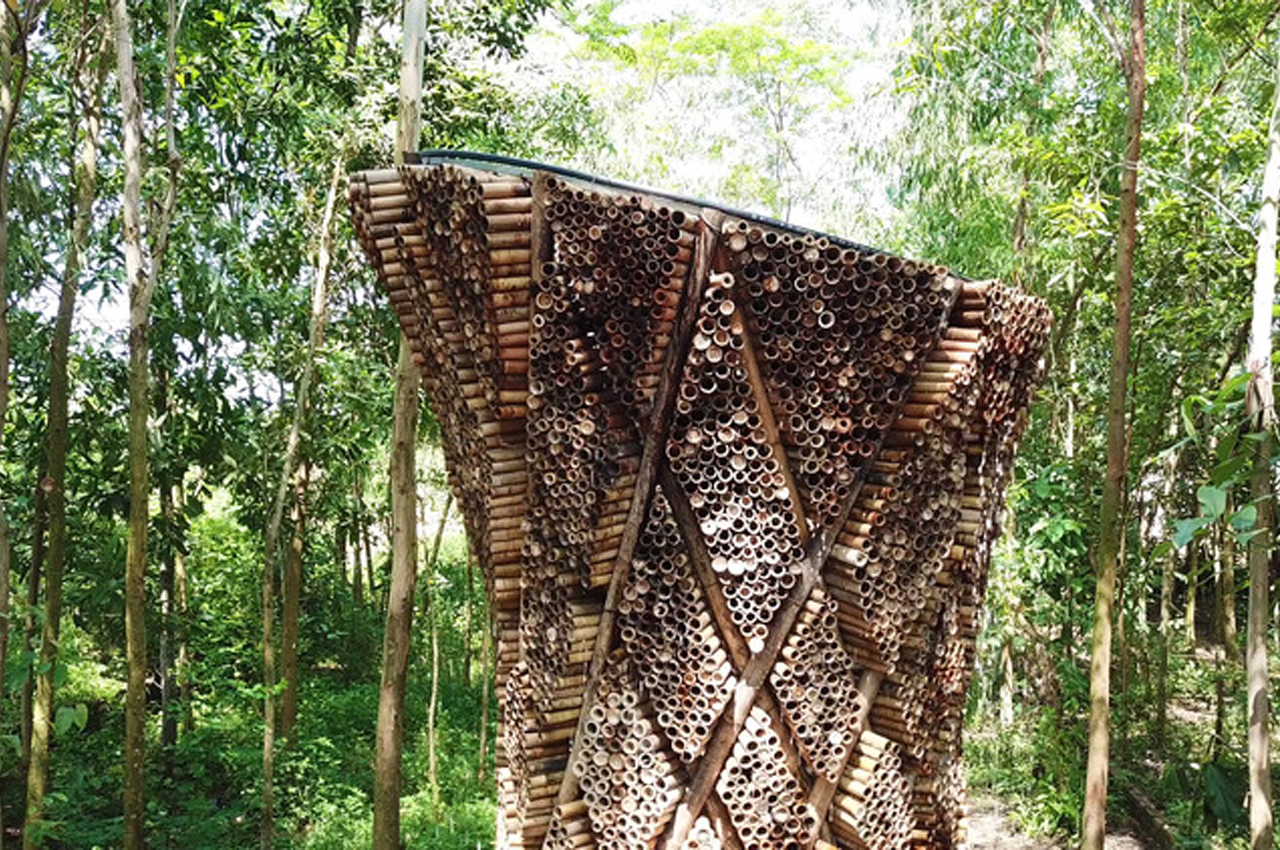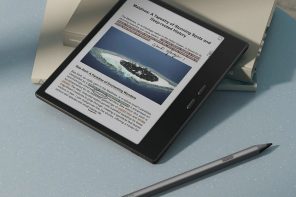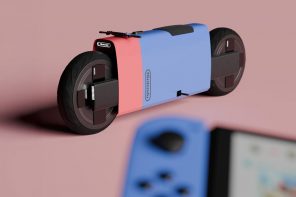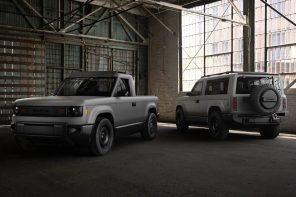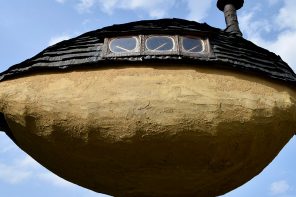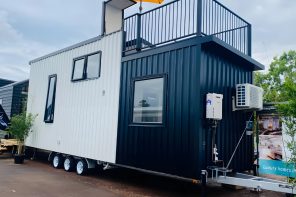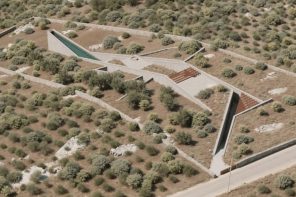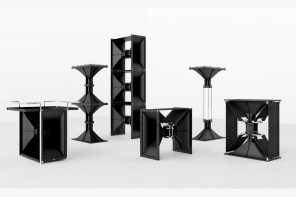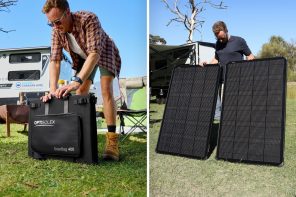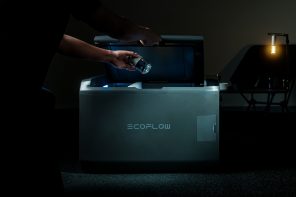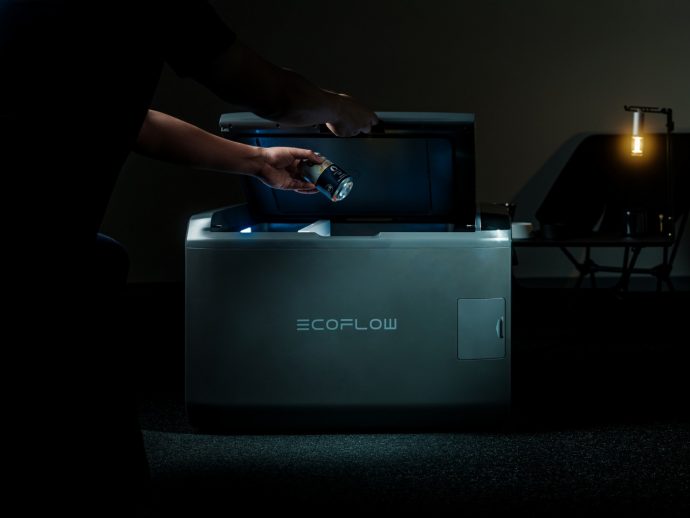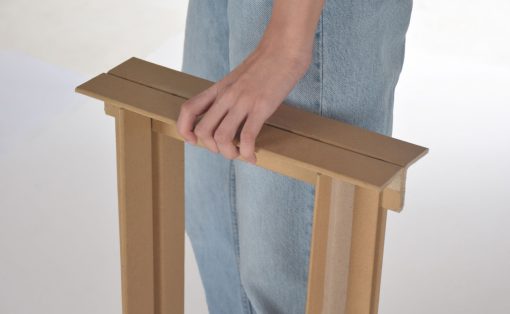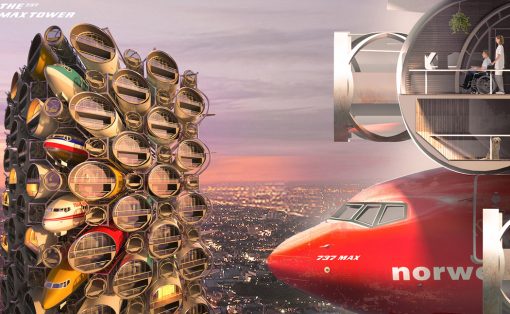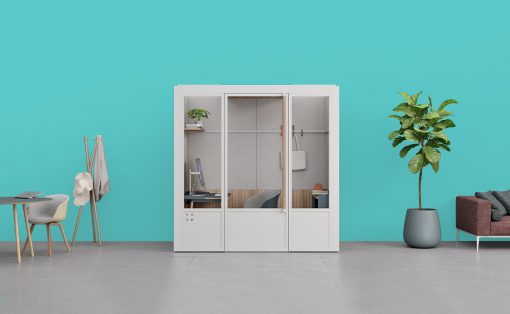French multidisciplinary firm AREP developed an alternative, energy-efficient cooling device out of bamboo as a sustainable, low-tech, and affordable means for cold air.
The ongoing threat of climate change has spurred many designers to action. Facing the imminency of prolonged storms, flooding, and recurrent heatwaves, coastal cities, and dry areas are especially vulnerable to the effects of our changing climate.
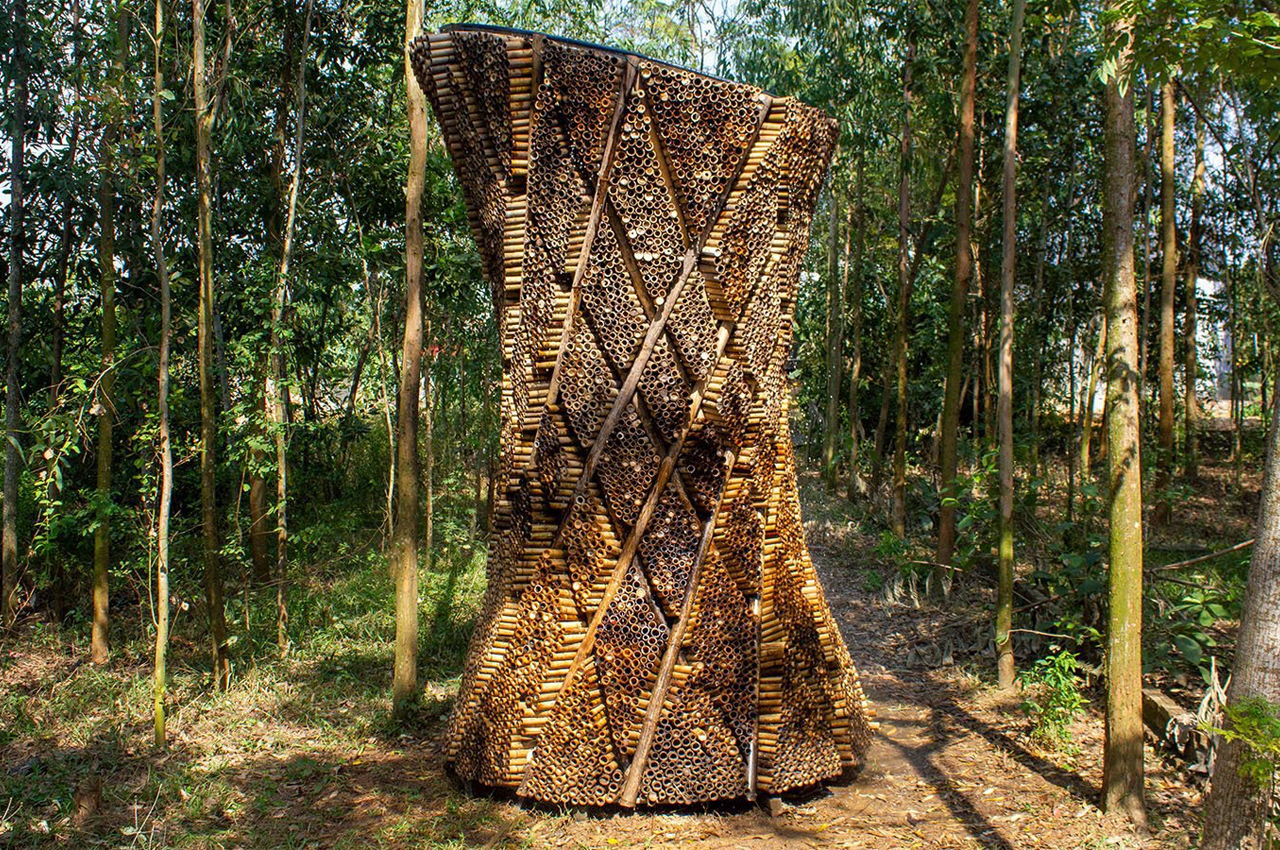
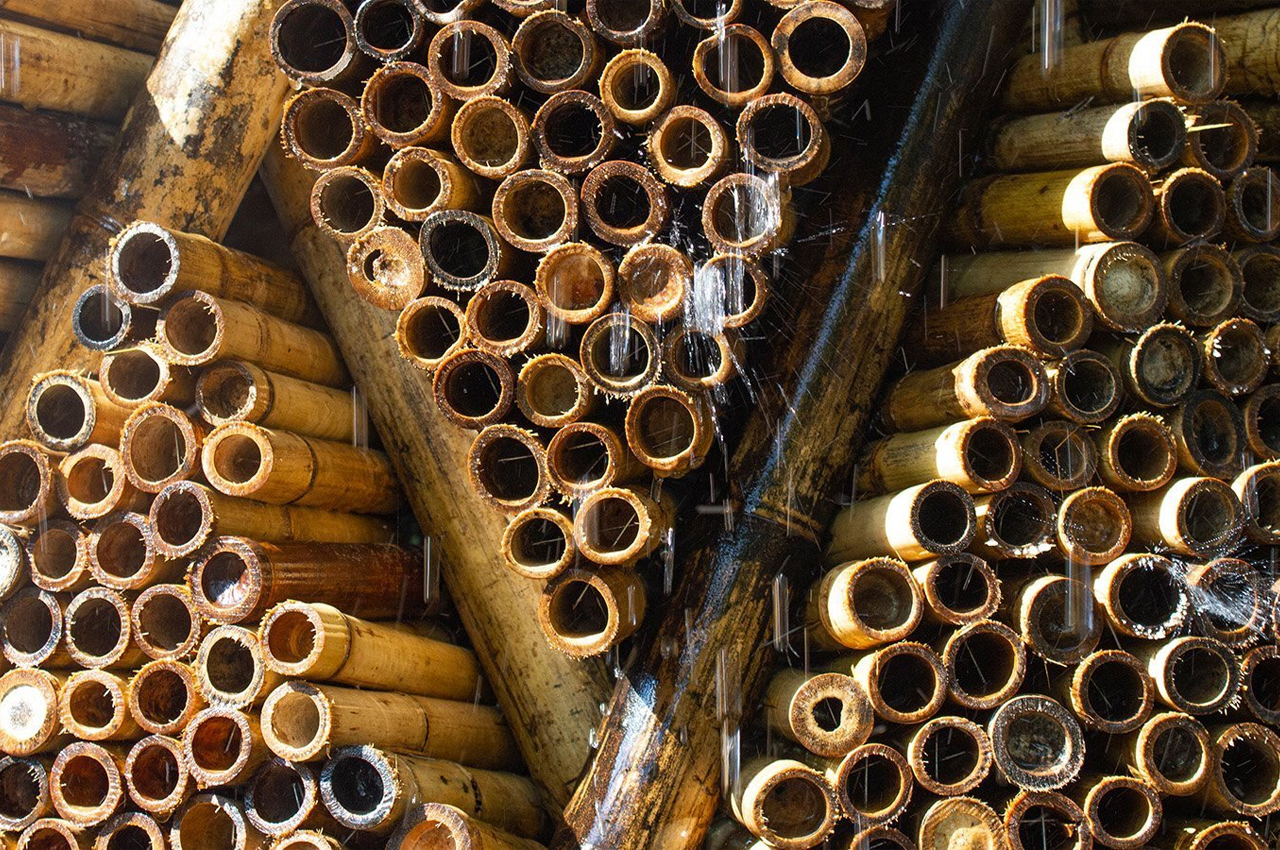
Vietnam is particularly affected by heatwaves, the city’s most chronic and cyclic of climate events. With excessive heat increasing the need for cold air, air conditioning units are constantly taking great amounts of energy to cool the city down and leaking coolant gas in the process, directly fueling the climate crisis.
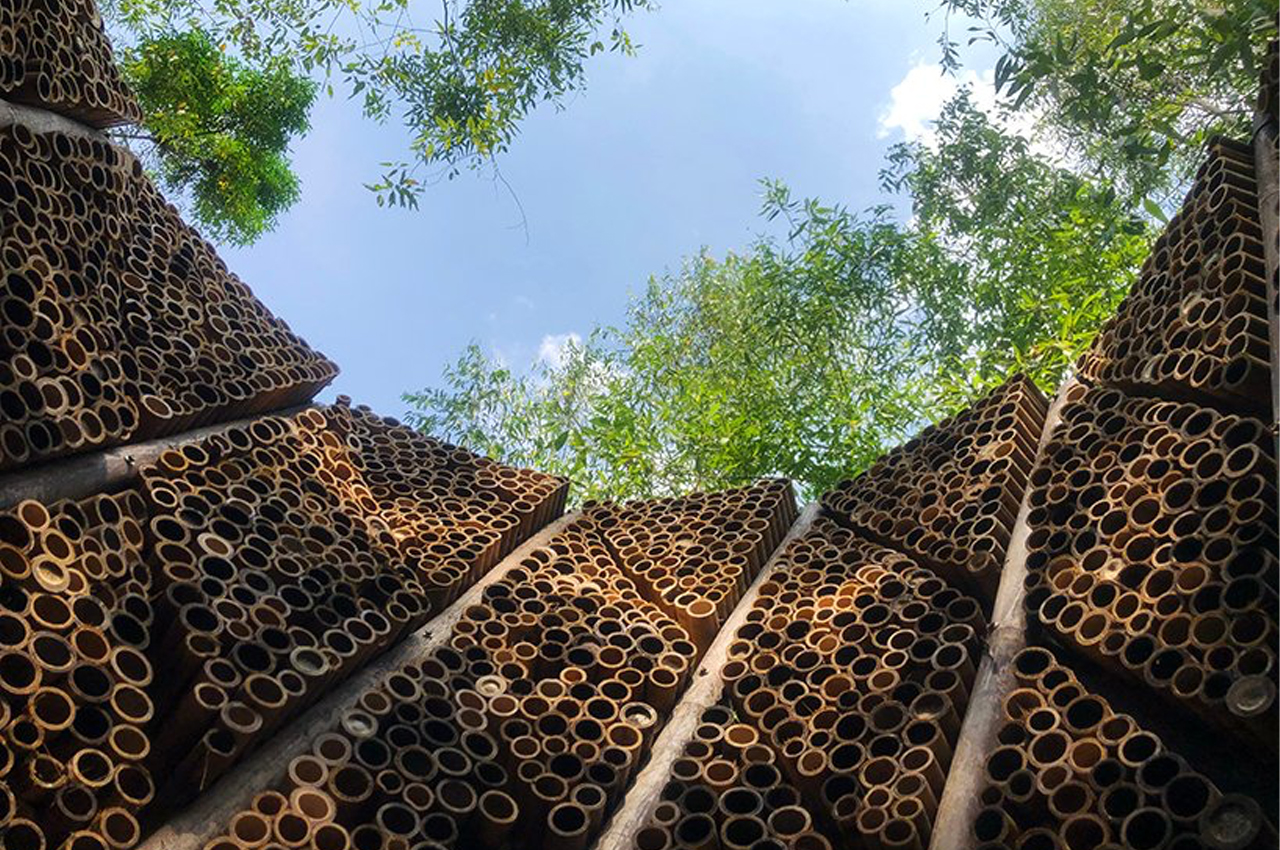
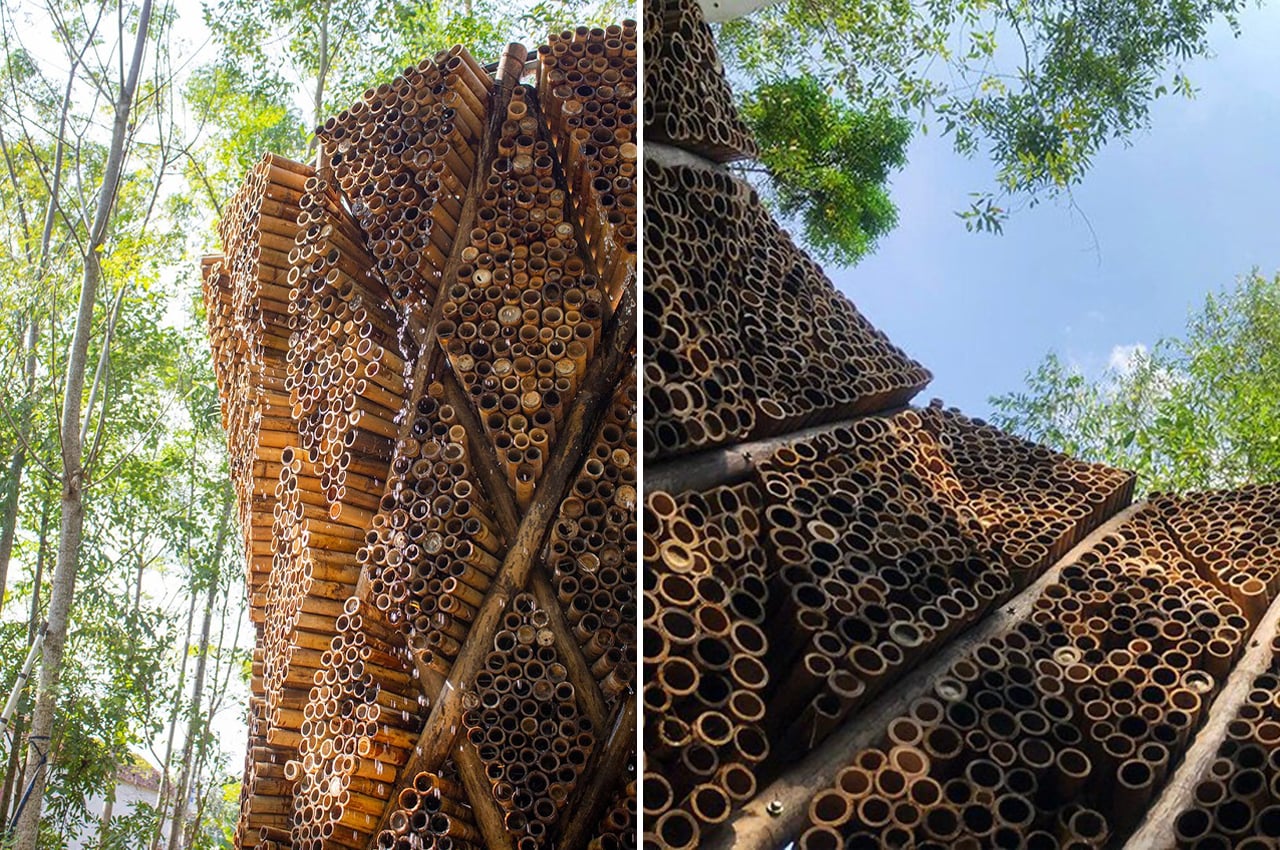
Following cues from the Seoul Architecture and Urbanism Biennale 2021 “building the resilient city,” French multi-disciplinary firm AREP designed an alternative, energy-efficient cooling device for a sustainable, low-tech, and affordable solution to combatting the climate crisis. Forming a hyperboloid shape for structural stability, the cooling device stands as a bamboo tower that naturally cools air through the adiabatic principle by using, “the natural freshness of water.”
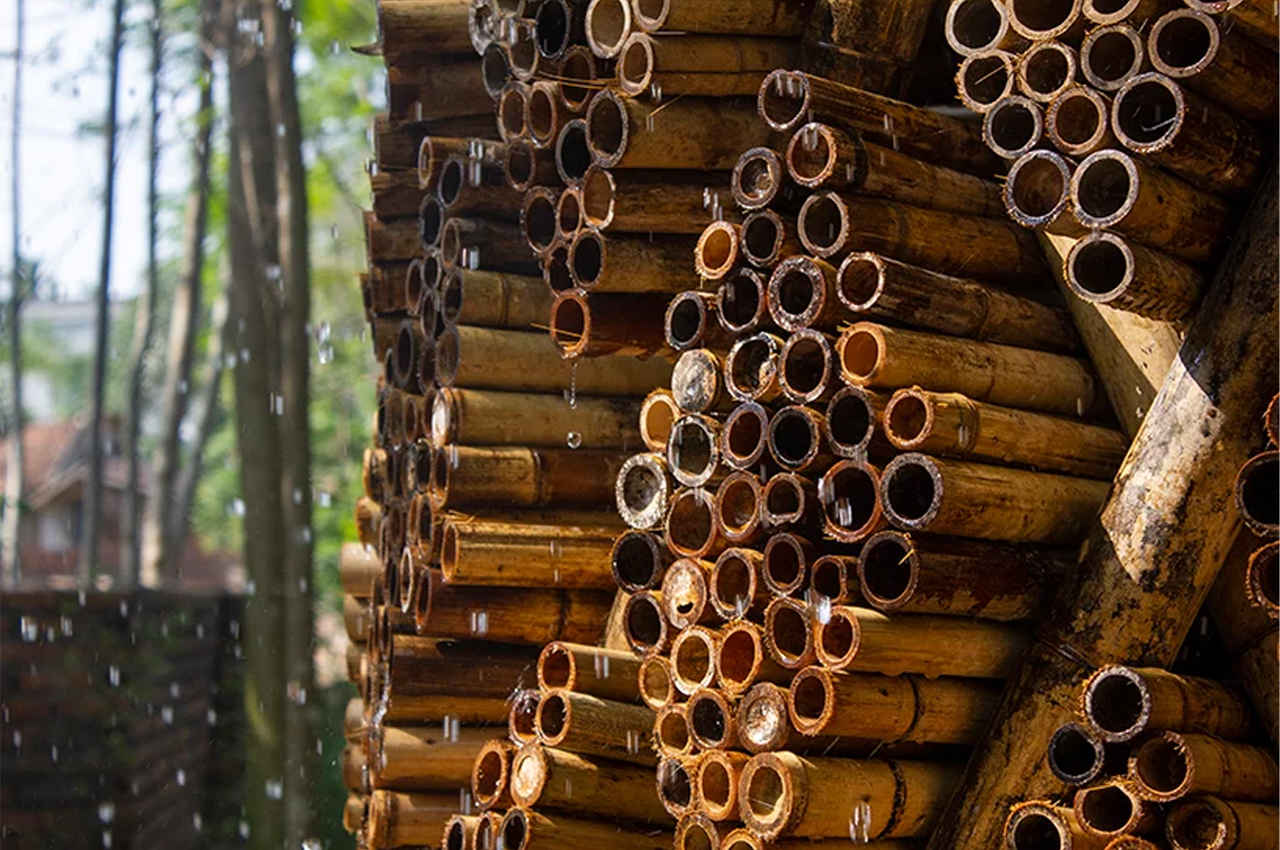
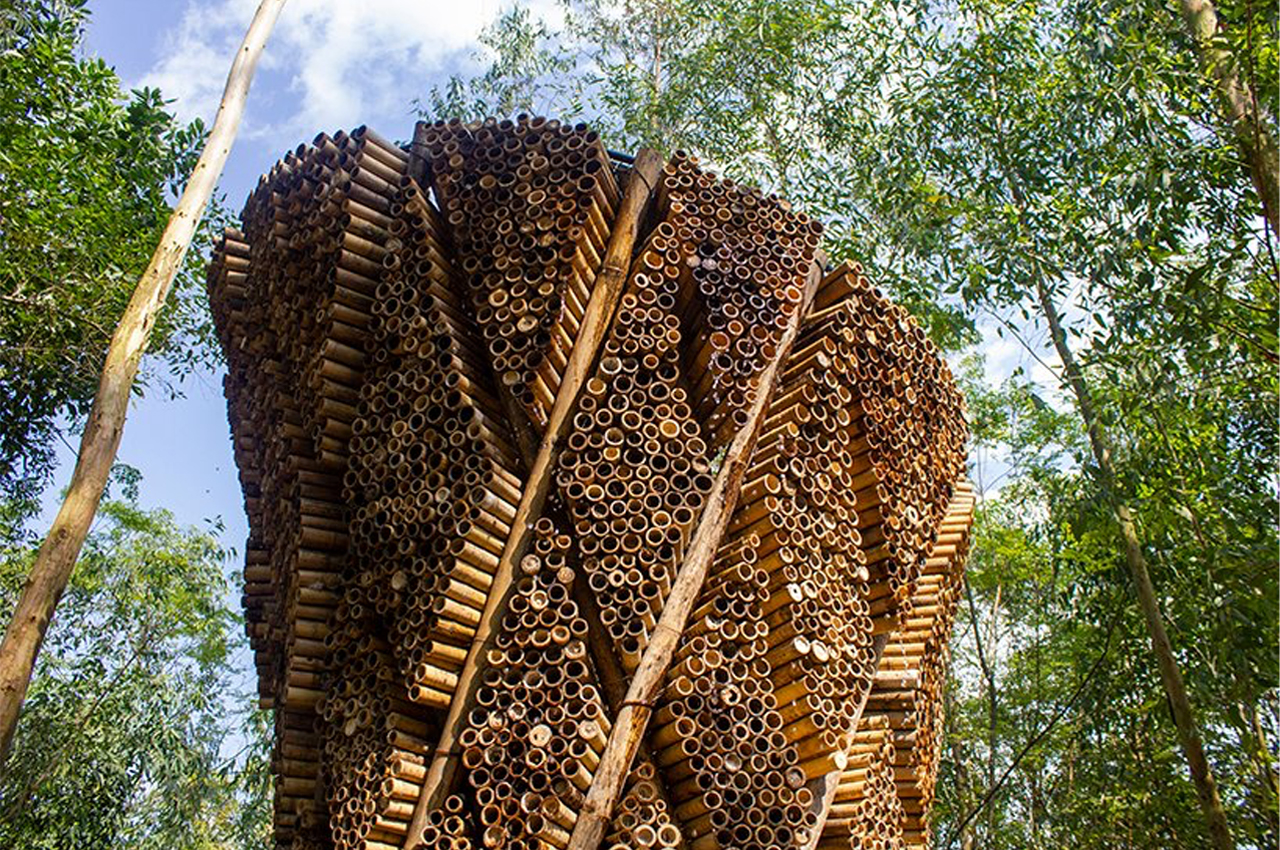
Explaining the cooling process, architects behind the bamboo tower describe, “To evaporate, water needs energy, which is ‘absorbed’ from the heat of the ambient air, thus generating the cooling effect.” More simply, the firm reasons that the process can be compared to moving closer to an open-air pool on a summer day–the closer you get, the cooler the air feels.
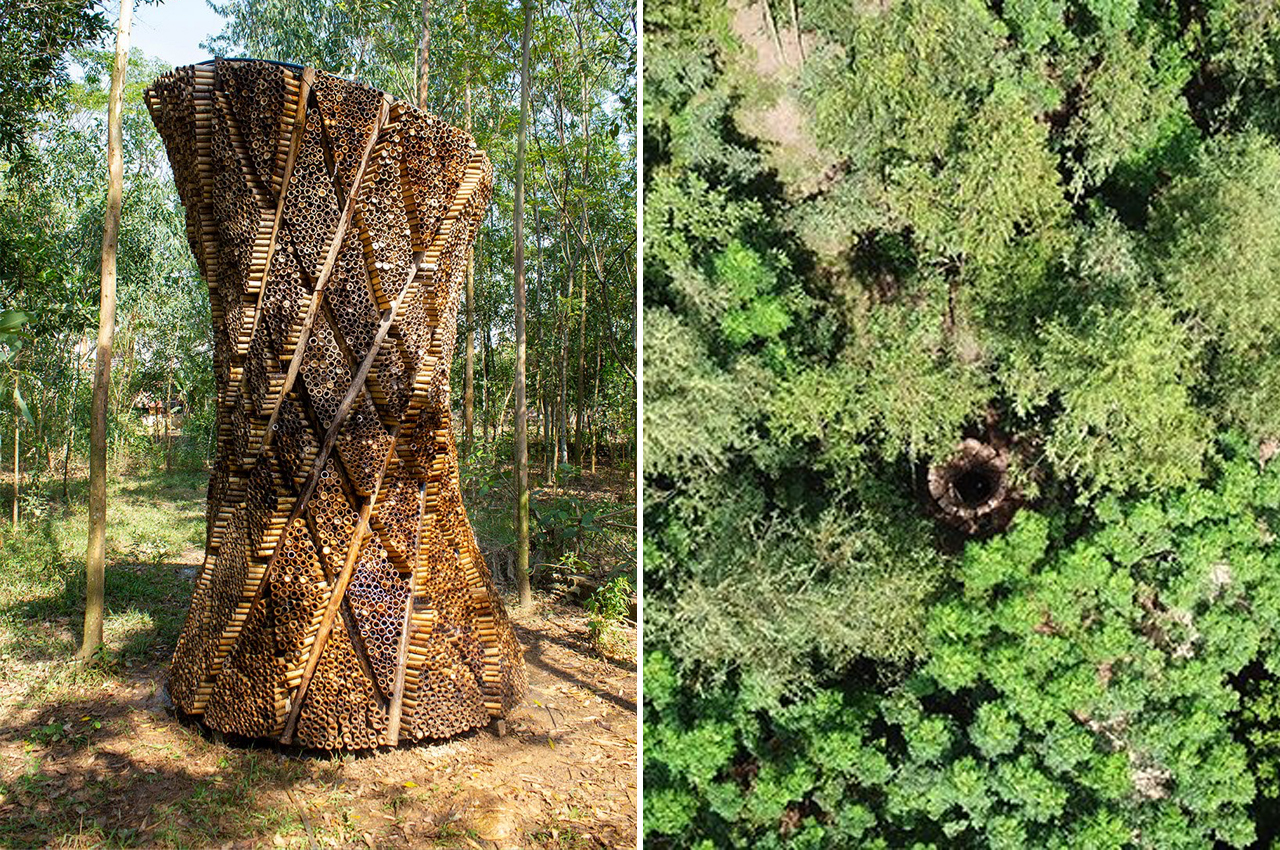
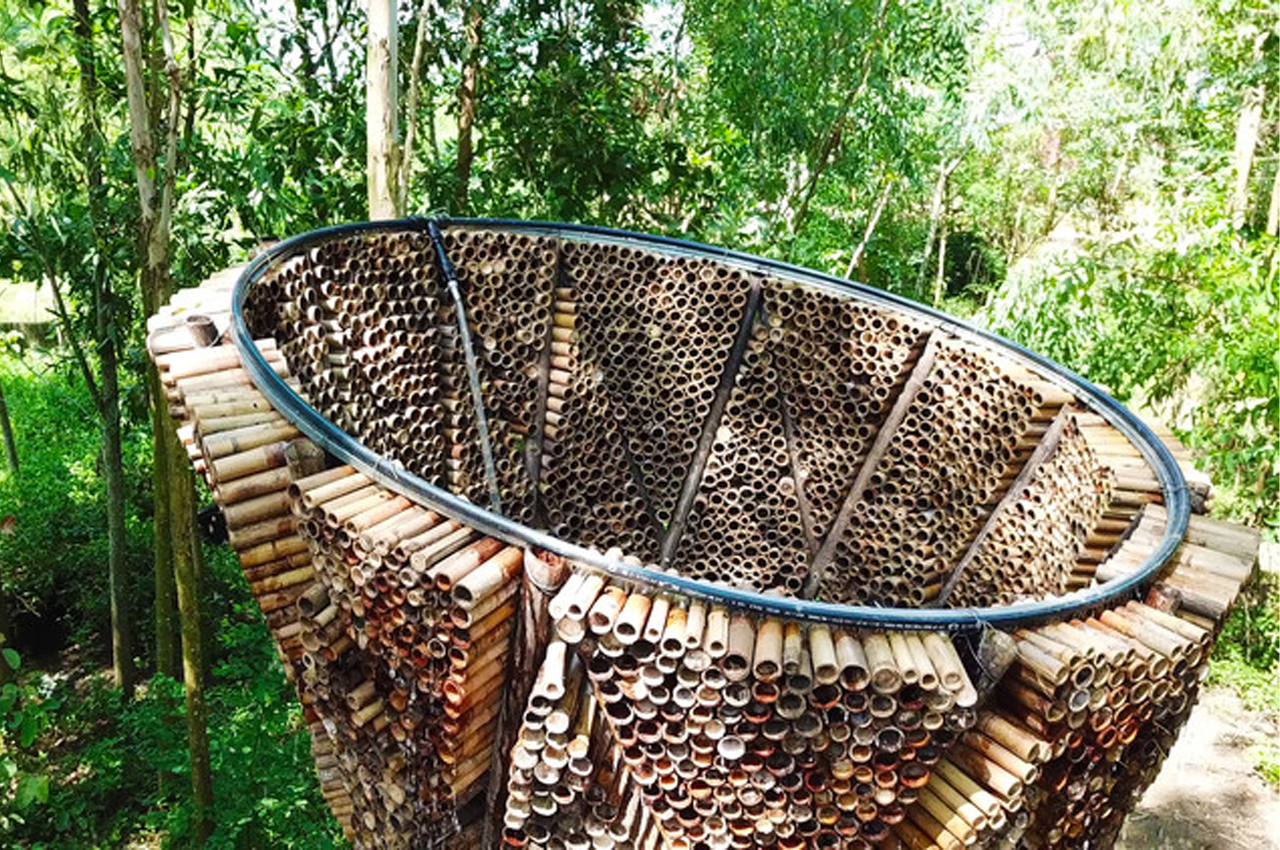
Inspired by the city’s local craftsmanship, the hyperboloid bamboo structure is stationed in Hanoi, Vietnam, where craft villages specialize in bamboo, silk, and pottery, among other trades. Relying on sustainable building and operation methods, AREP designed a cooling device that can be built responsibly from abundant, local resources.
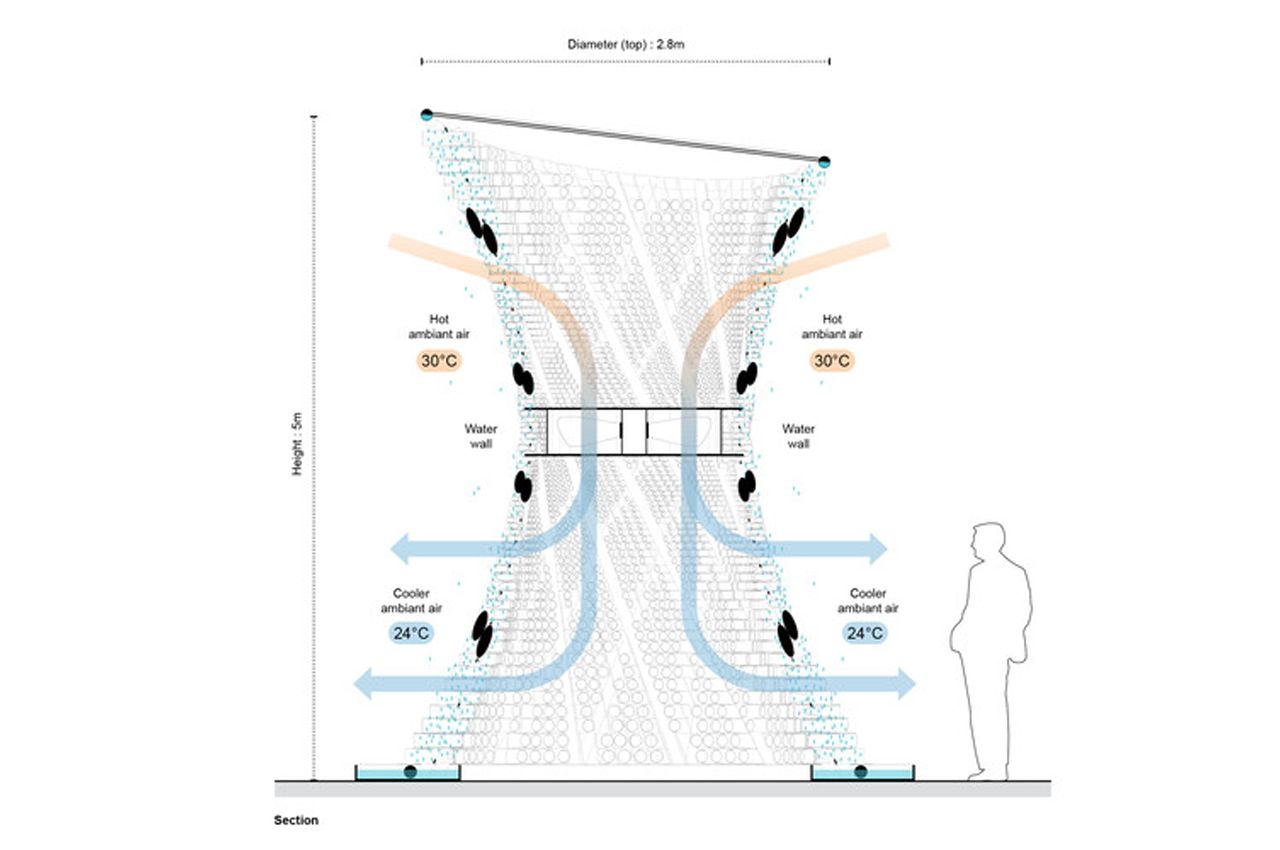
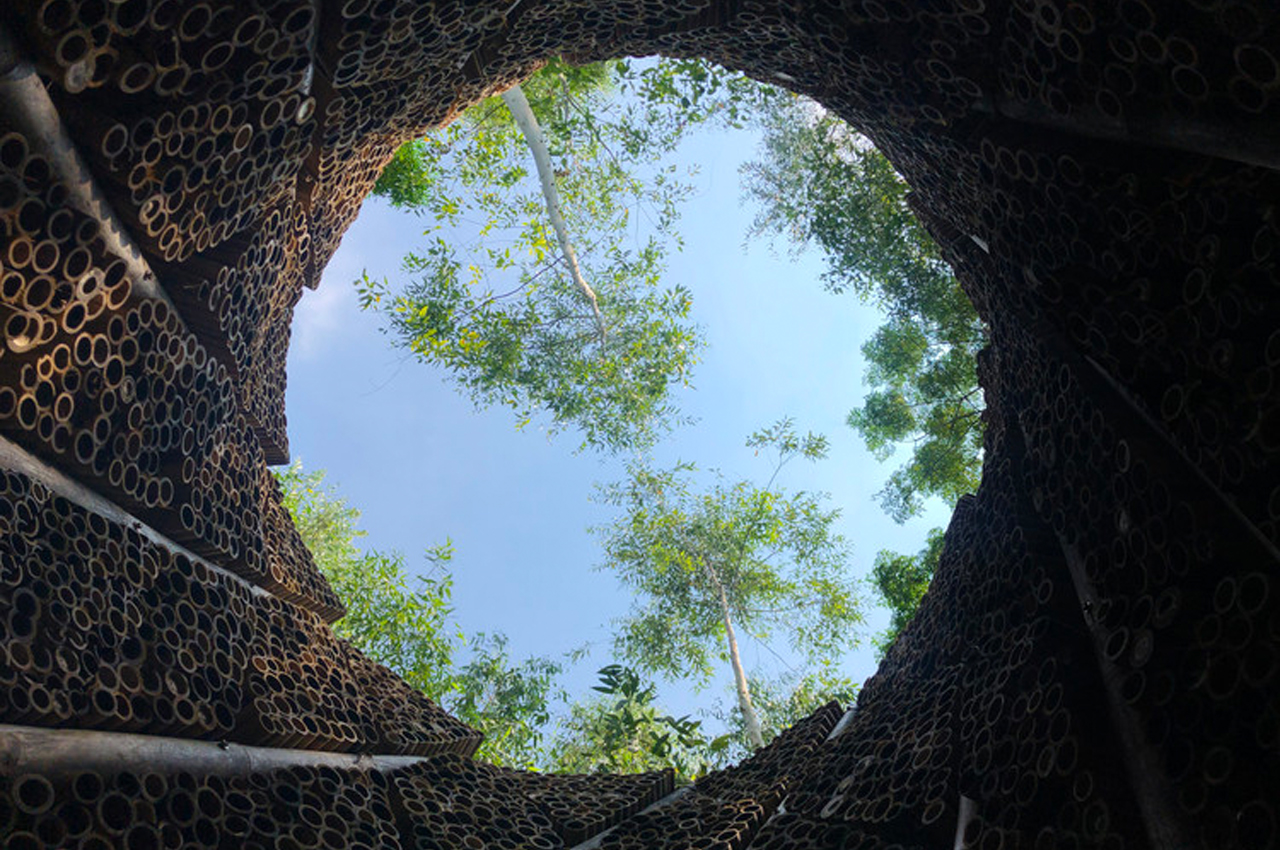
Depending on the adiabatic principle for function, the bamboo tower features a grid of main poles that transfer water through gravity. Then, “at its center is installed a blower taking the hot air from above and pushing it down at human height. As it crosses the water twice, the air is naturally cooled by the adiabatic principle.”
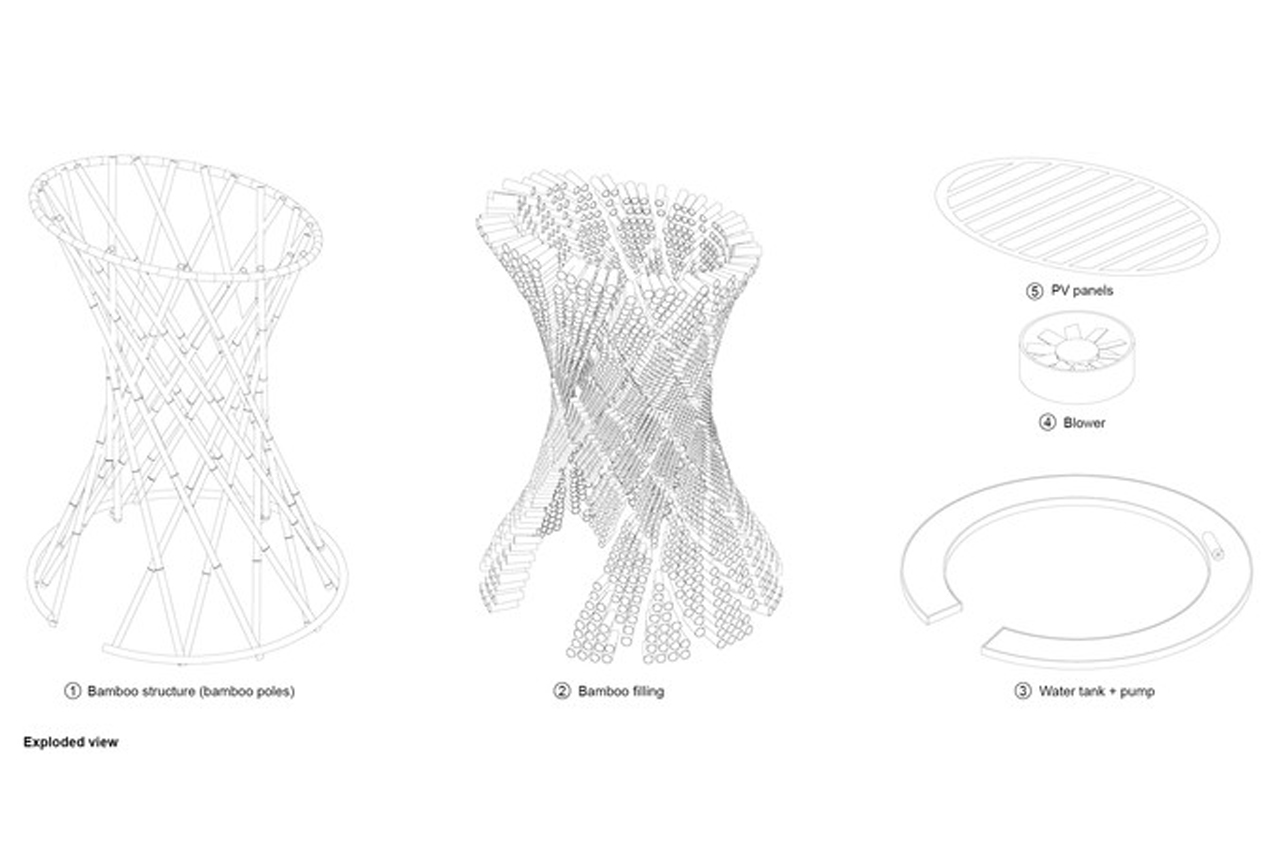
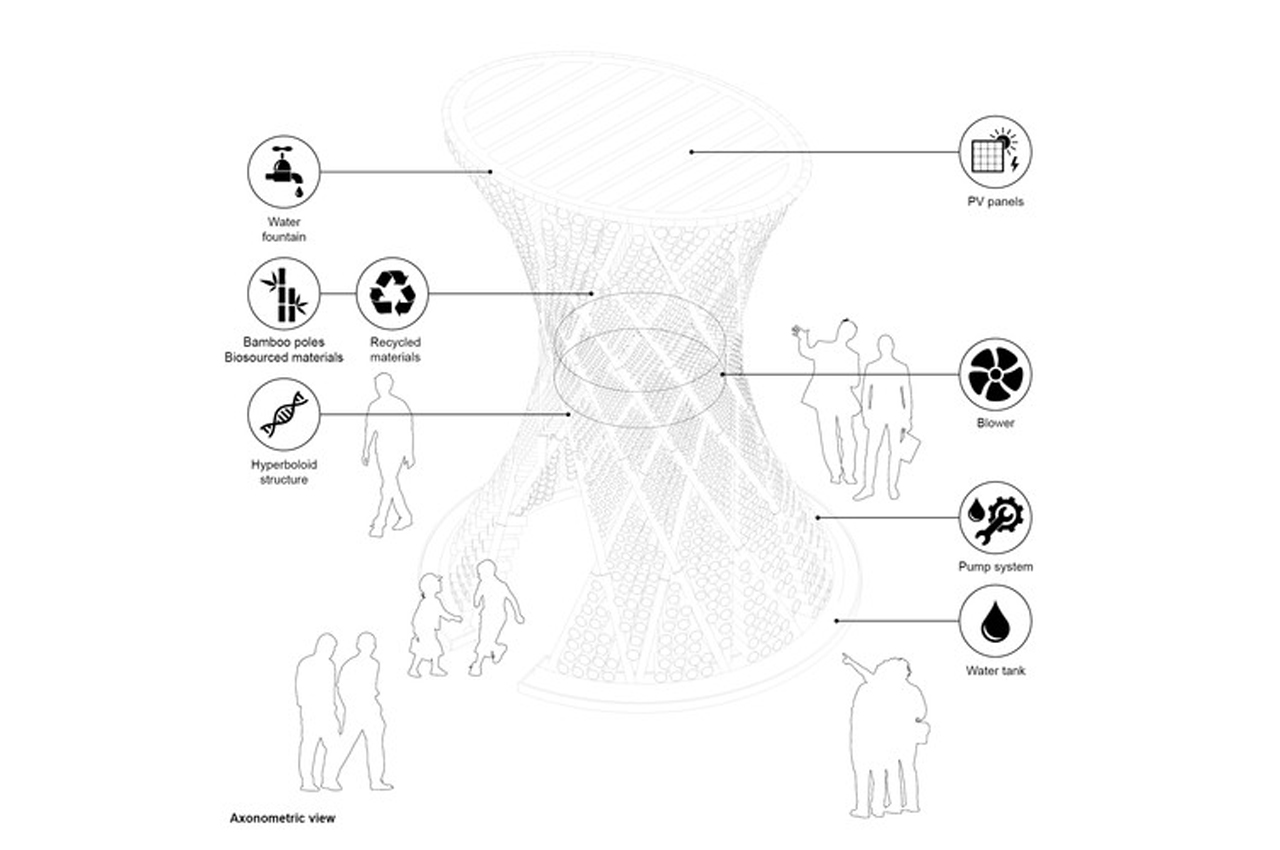
Upon developing their own BIM parametric digital model for prototype phasing, AREP envisions the alternative cooling device in dryer climates, like near the Mediterranean basin or in the gulf, for public squares, sunny pedestrian streets, and larger buildings like train stations.
Designer: AREP
